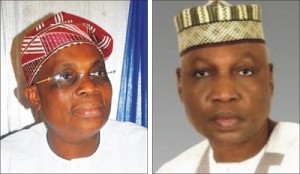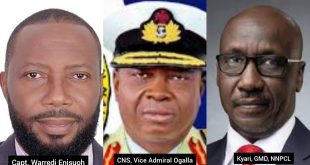
There are key factors that retard the growth of airlines in Nigeria. One is the high cost of maintaining their aircraft overseas; two is that majority of their technical staff are expatriates so they pay hugely for their remuneration; three is that the airlines are over taxed.
Another setback is that the necessary infrastructure needed for smooth and seamless operation is inadequate and the scarcity and high cost of aviation fuel are also among the challenges hindering operations of local airlines.
There are other contributory factors which stakeholders have adduced to the failure of Nigeria to have strong, viable airlines. These include the attitude of airlines, the ruthless competition and the failure of the airlines to cooperate and work together. On the government side, stakeholders accuse the government of giving multiple entry points to foreign airlines; although they acknowledge that as the indigenous carriers have limited capacity, international carriers must be encouraged to fly into Nigeria to meet the demand of the country’s heavy traffic.
However, the National Association of Aircraft Pilots and Engineers (NAAPE) seems to be optimistic about the viability of the industry. They believe that with concerted efforts, things would definitely be better.

“The Nigerian aviation industry has endured numerous setbacks yet it stands strong! The current situation is far from perfect but its emerging face is proof that more can be done to attain international standards with a positive ripple effect on Gross Domestic Product (GDP), investment opportunities and national development. Challenges in the aviation sector are not limited to negligence, lack of financial availability or incompetent management etc.; but mainly due to the lack of effective strategies for policy implementation and the creation of requisite structures and environment for sustained growth. This concept proffers practical solutions with new dimensions for aviation growth for national development,” the association’s president, Isaac David Balami said in a recent presentation.
Challenges
Balami said airlines are the basis of aviation as therefore should serve as the fulcrum of all aviation activities, so all policies, programmes and actions of industry stakeholders, particularly policy makers should be such that will promote the good health of airlines.
“This ideal situation has not been the case in Nigeria. As a result, the Nigerian aviation landscape is littered with corpses of airlines bearing various epitaphs: “died due to poor economic regulation”, “died due to absence of enforcement of regulations”, “died due to lack of, or poor, funding”, “died due to poor management”, “died due to uncertain policy environment”, “died due to undue interference in management”, “died due to excessive taxation”, “died due to unfair competition”, he said.
According to him, as a direct result of this unsavoury situation, it became difficult to find a viable airline in Nigeria if international aviation benchmarks are strictly applied.
“Regrettably, it is more difficult to find an airline that has declared dividends in Nigeria in the last five years,” the NAAPE President said.
He identified some of the critical problems of the airlines to include suffocating operational environment, evident in the skyrocketing cost of aviation fuel, cost of maintenance, cost of aircraft and spares in the face of worsening exchange rate, excessive charges, multiple taxation, ageing fleet and uncompetitive fares.
The problems also include inadequate managerial capacity and a dysfunctional management structures due to ownership behavior; the ‘go-it-alone’ and ‘follow-follow’ syndrome of airline operators; the absence of long term strategic planning and the willpower on the part of owners and managers and the absence of specialised banking/favourable financial environment.
Balami also identified other problems which include unfair competition and unnecessary monopoly with foreign mega carriers, made worse by government’s uncaring attitude which is exemplified by multiple designations granted to foreign airlines that prevent local carriers from the market; absence of clear government policy on airline business rehabilitation, revamping or revitalisation and the shortfall in technical and economic regulation on the part of the Nigerian Civil Aviation Authority (NCAA).
Way Forward
As way forward, Balami suggested that government should encourage airlines to have mergers and also review the taxation regime on airlines. He said the Federal Ministry of Aviation should foster an arrangement through incentives that will bring about mergers of airlines, culminating in the emergence of one or two mega-carriers which can become global players.
“The government could through Bank of Industry (BOI) adopt a carrot and rod method. The carrot could be offering soft loans to merger carriers that achieve a certain level of capitalisation while the rod would withdrawing or suspend the Air Operator Certificate (AOC) of airlines that fail to meet prescribed capitalisation after a given time, or restrict them to particular hubs only.
“The federal government should review the multiple taxation regimes presently in place. To start with, government should stop charging Value Added Tax (VAT) on air transportation, especially so because air transport is the only transport service being presently VAT – against the principle of equity. Road, rail and waterway transportation services are VAT exempted. The Federal Airport Authority of Nigeria (FAAN), Bi-Courtney Aviation, NCAA and other government agencies should immediately review downwards their landing, parking and other charges because they are rather arbitrary and on the high side, especially considering that services are not commensurate with the charges when compared to other economic climates,” Balami said.
Collaboration
Also the CEO of Medview Airlines, Alhaji Muneer Bankole spoke in the same vein on Sunday, saying that airline operators should stop thinking that they could go it alone, so they have to come together and chart a new course for the industry through partnerships. But he dismissed the idea of mergers because of the incompatibility in equipment and ideologies, noting that passengers have their choices, so a passenger who prefers Boeing aircraft may be reluctant to fly Airbus.
“I find out that most of us in this industry think we can go it alone. Dog eat dog is a nonsense idea. No one alone has all the ideas. If you bring your own ideas, I bring mine; we put it together and give this country the best. That is what we should be looking at now. There is no reason for Nigeria to still be at the present situation we found ourselves considering what we have, so more needs to be done to improve the industry,” Bankole said.
He expressed the regret that the inability to come together and work together is the bane of airline growth in Nigeria, adding that if airlines work together they can go to government and make requests with one voice and government would not ignore such requests as everything would be aimed at improving the industry.
“A lot needs to be done. We are members of Airline Operators of Nigeria (AON) but we are still divided. We told them to come together, but they have not been able to do that. We need to grow this industry in a way that more people can fly. As you asked what role will government play in order to enhance the capability of Nigerian carriers to enable us to perform and to enable us to contribute into this economy? As an indigenous carrier I still want to emphasize that we have about eight airlines that are operating, how many aircraft do we have and how many rotations in a country of about 170 million? First and foremost we need commitment from individual carriers to show sincerity of purpose about what we are determined to do,” the CEO of Medview Airline also said.
Manpower and Maintenance
The Executive Chairman of AON, Captain Nogie Meggison, said the issues agitating the minds of operators include the need to have aircraft maintenance hangar in the country.
“These also include the exclusion of domestic airlines by the Central Bank of Nigeria window for foreign exchange; the skyrocketing price of aviation fuel, multiple tax regime by aviation authorities to domestic carriers; the removal of Value Added Tax on air transportation as other modes of transportation, including foreign airline operating in and out of Nigeria who are also not paying VAT.”
“There is the need for the improvement of service delivery by aeronautical agencies; other issues to be addressed include access to single digit loan by financial institutions; engagement of more Nigerian pilots / engineers by foreign carriers (over 500 pilots and engineers youths unemployed); multiple entry points granted foreign carriers and inadequate airport facilities and day time only operation of most of our airport.
“We hope that as the incoming administration settles down in office, it will put a strong aviation policy in place and engage AON on how to move the strategic and air transport sector forward to a place where we should be. Aviation is a major contributor to Nigeria economic and GDP (from 0.4 per cent to 10 per cent in two years). It has employed teaming youths and skilled pilots and engineers and created 5000 skilled and 50,000 indirect and indirect jobs in two years,” Meggison said.
De-marketing and Stifling Competition
Chairman of Air Peace, Allen Onyema said that one of the major challenges being faced by Nigerian carriers is the nihilism engendered by de-marking tactics whereby airlines run themselves down and unwittingly frighten potential customers from travelling by air.
“The industry is highly underdeveloped in this country. Part of the reasons and chief among the reasons is the devilish competition amongst the airline operators. Those who have been in this business have done nothing to develop the industry. A situation where they de-market each other and at the process of de-marketing each other they are putting so much fears in the minds of the flying public or those who would have taken to flying. When you tell them that airline XY Z is unsafe, airline XYZ’s plane is 75 years old, airline this doesn’t have this. I have brand new aircraft, I have this and the other one doesn’t have that. The other airline will just crash. When you continue de-marketing other airlines many people will become afraid to fly any airline; that is why the industry is highly underdeveloped,” Onyema said.
So both the airlines, the aviation agencies and the government must have to sit down and think out ideas on how to eliminate the many problems in the industry, guided by the success story of the aviation industry in other nations, both in Africa and beyond.
Culled from This Day.
 MMS PLUS NG – Maritime, Aviation, Business, Oil and Gas News Online Newspaper with coverage in Maritime, Oil and Gas, Aviation, Power and Energy as well as Financial News
MMS PLUS NG – Maritime, Aviation, Business, Oil and Gas News Online Newspaper with coverage in Maritime, Oil and Gas, Aviation, Power and Energy as well as Financial News









